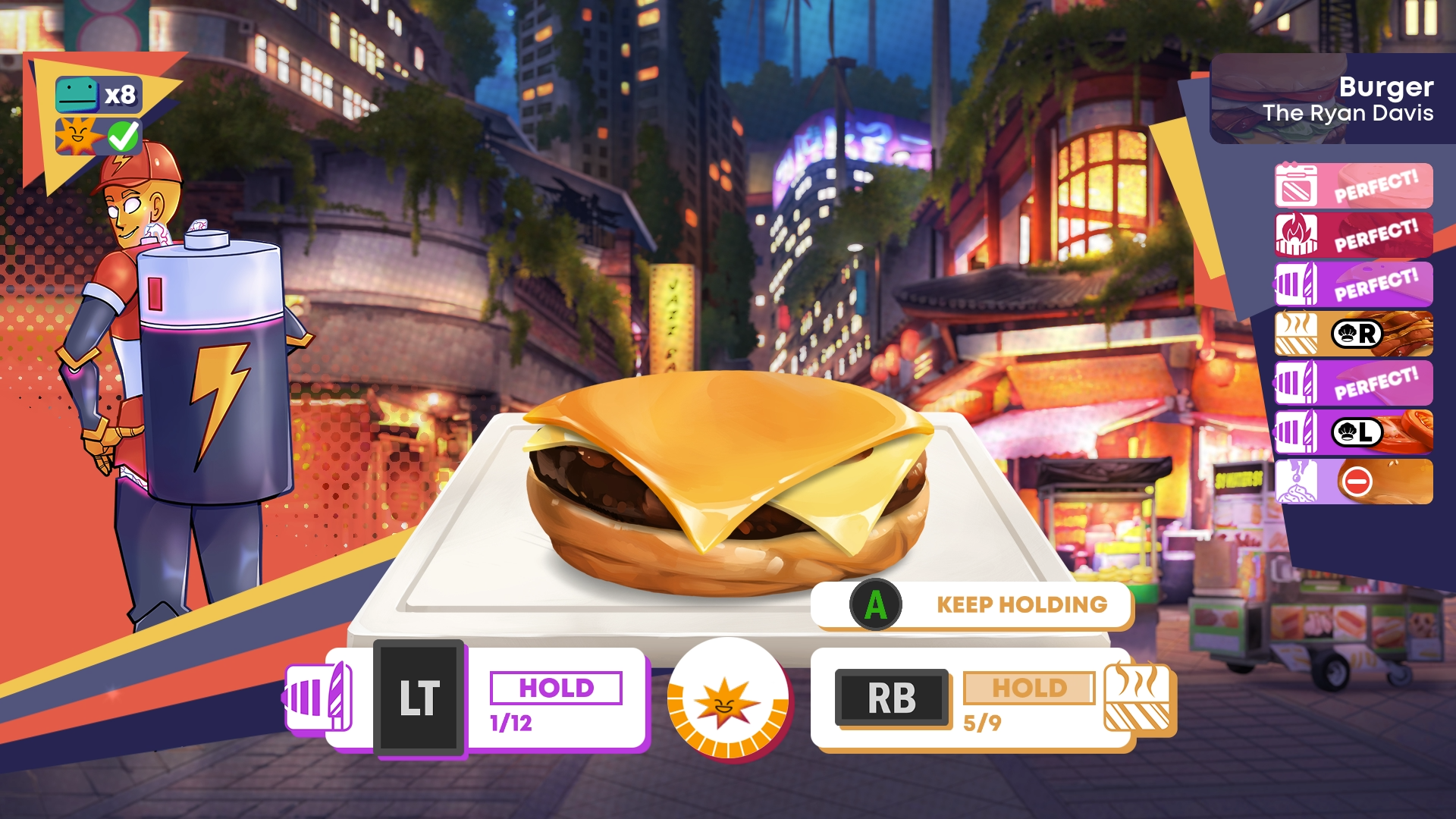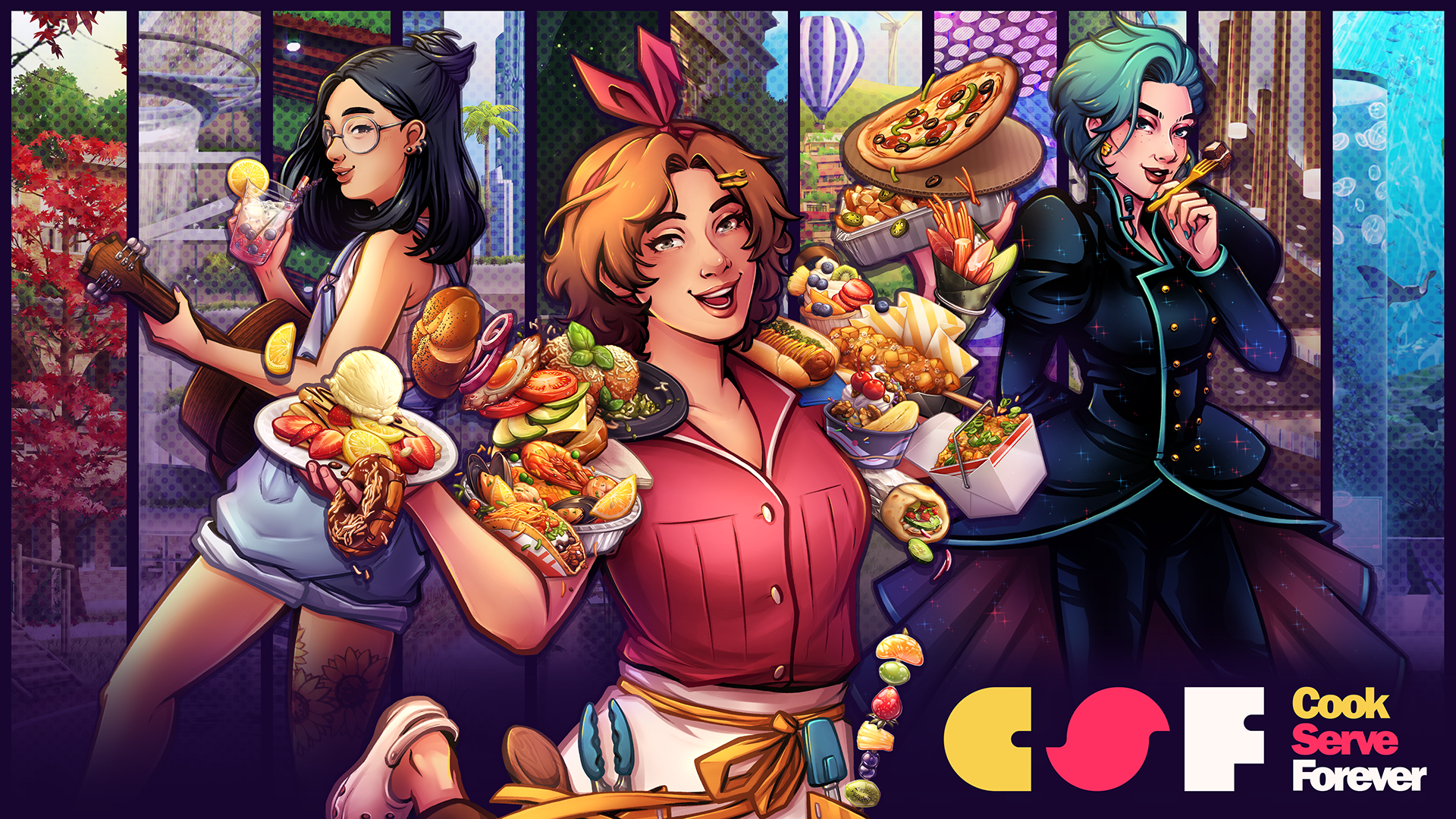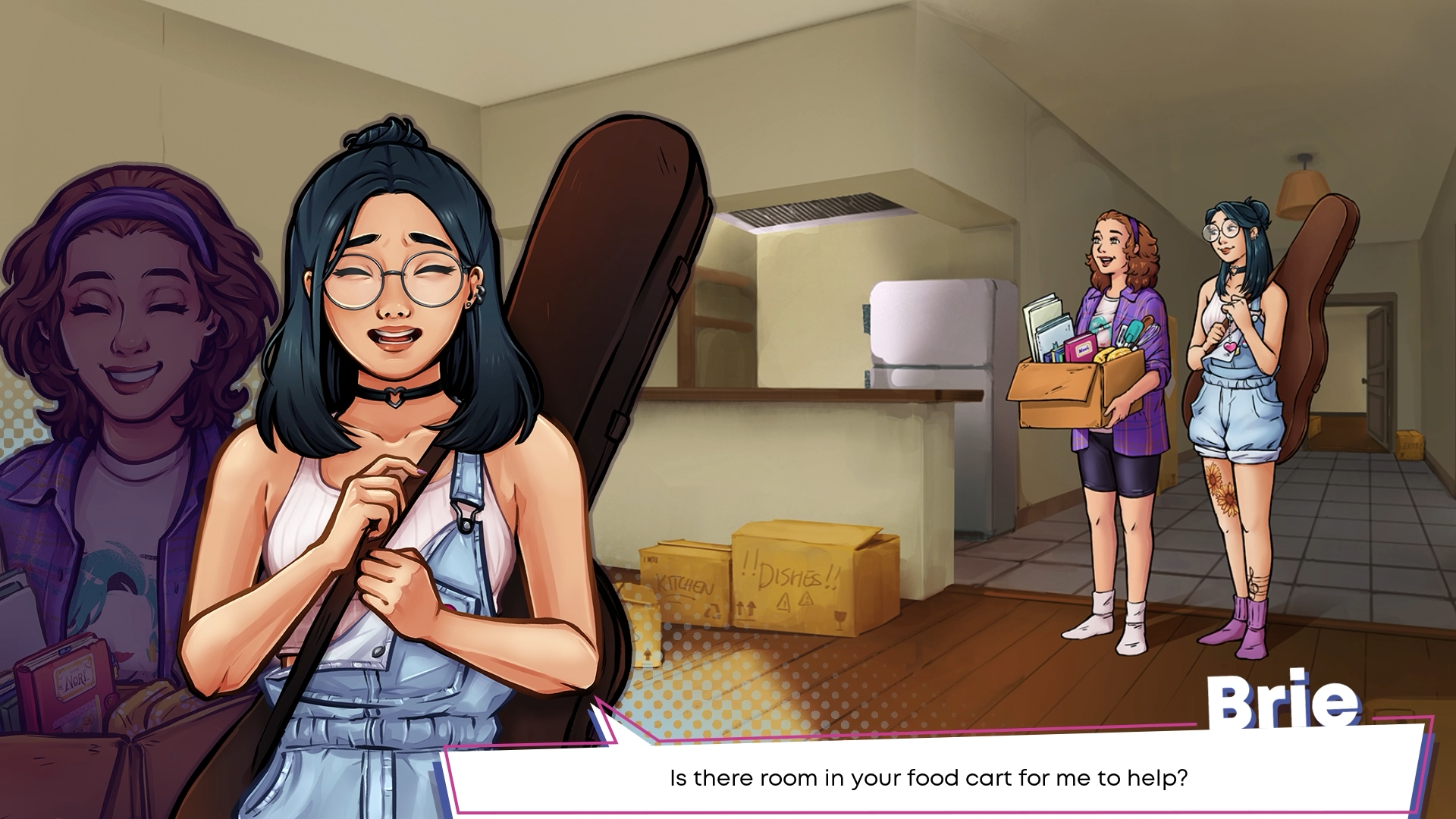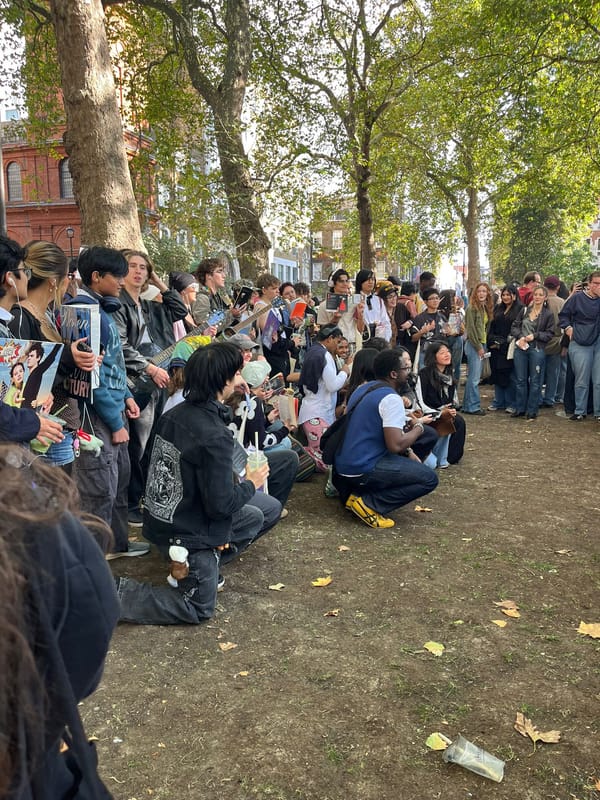The story of Cook Serve Forever's launch
Steam reviews don't always tell the full story, especially when a game goes through a tough early access. In this exclusive interview, CSF's developers talk about their experience.
Cook Serve Forever (CSF) is a nearly perfect game, but that’s not what many of its players say. I spoke to its developers about why.
“I am a long time fan of Cook Serve Delicious ever since the original,” reads one review. “If you want to play a cooking mama clone with almost no difficulty wearing the skin of this series that it has murdered this your game.” Oof.
CSF is a short visual novel cooking game, which received “mixed” reviews on Steam at 67% positive after 299 reviews. Compare this to the first game in the series, Cook, Serve, Delicious!, which is “overwhelmingly positive” at 95% positive after 3,692 reviews.

CSF is the fourth game in the Cook Serve Delicious (CSD) series containing the original Cook, Serve, Delicious! and successors 2!! and 3?!. However, CSF is a significant deviation for the series. For a start, the fact that CSF has a storyline is in itself new. It’s also designed for a controller where previous games were typing games, and the game has much lower stakes, with many opportunities to relax where previous games were markedly difficult and fast-paced.
David Galindo is the creative lead, game designer, programmer, and owner of Vertigo Gaming, the studio which made CSF. He described the game as “Definitely a visual novel cooking game – it’s packed to the gills with story and character development, and there’s only a few rare instances of significant gameplay challenges (the Blitz modes are some classic CSD inspired gameplay).”
This difference between expectations built up from a challenging cooking game series and the reality of a visual novel featuring cooking game massively impacted the game’s reception. What we see in the CSF’s review score is that only 67% of people who played the game were the kind of people who would like it. CSF is not 67% “good” and 33% “bad.” For a game as well executed as CSF, these mixed reviews mean that of the people who tried it, about a third were not the target audience. Galindo explained, “As far as player expectations, I’ll take the heat on that as well, as we did name this game after our fast-paced cooking franchise and CSF is very much not that at all. I think there are some rare instances where you can get away with that but it was a bridge too far for us. CSD and Forever are worlds apart.”
Galindo also told me why they chose to make something so different, “Foolishness, if I’m being honest. We had a great audience carved out of this niche gameplay with the CSD series and I assumed we couldn’t really grow it any more, so we pivoted to a more casual style that I figured would be worlds beyond most casual cooking games on the market. And while we got there in the end, our original launch was so bad, gameplay wise, that I didn’t consider why those casual games are so popular. I just didn’t understand the market like I thought I did.
“At the same time, I don’t necessarily think the next game should have been CSD 4. Sometimes you need that nice long break to charge up ideas and reflect on where to go next, and now that it’s been five years since CSD 3, it feels like the right time to be making Cook, Serve, Delicious: Re-Mustard!, a remake of our first Cook Serve Delicious game, coming out next year.”

Big fans of CSD were either too disappointed by differences between CSF and CSD to continue or fell in love with a new experience only after realising it wasn’t what they were expecting. Managing player expectations can be challenging for developers and especially so for ones with such a strong brand. The developers wanted to differentiate Cook Serve Forever from the other Cook, Serve, Delicious! games without completely detaching it from them, but ultimately it didn’t work out.
CSF also went through early access (EA), where the game is public before it is finished, and Galindo pointed to this as a significant source for CSF’s bad reviews. “It is a very different game, even different from the time we originally released it in Early Access to today, and I think the game now is so much better than it was before. But that’s the risk you incur with EA, and a lot of the negative reviews are outdated takes on the original gameplay. It definitely makes me wonder if we’ll ever deal with EA again.”

CSF oozes love and care in every aspect of its creation. From the full voice acting to gorgeous art and music, you can tell straight away when playing this game that it is a passion project. Galindo explained to me that creatively, at least, they made what they wanted to make - “I do think creatively we got there in the end, and – I truly mean this – it’s one of the best games we’ve ever made. To that end, I think it’s a very successful game and I hope it finds an audience in the years to come. I don’t think anyone that worked on this game will ever forget it, for better or worse. I am thankful that we managed to survive it.” This is the reason I would describe CSF as nearly perfect. CSF is a simple idea executed nearly flawlessly.
Sadly, this deviation from the form of CSD games did not come without a material cost to the small studio. Galindo told me, “Commercially, it was not a success – it was a failure and I had to lay off half the team, something we didn’t make public and it was one of the lowest points of my career. But we’ve been slowly rebuilding since then, and I realised that scaling up the company was the wrong move to begin with, and I’ve had plenty of time to ask myself what I actually want to do. So it’s done a lot for me to refocus my company and align my life goals with my career goals. I had to fail to see what was always clearly in front of me, and that was tough, but I’m forever thankful for it.”
I came into Cook Serve Forever with no expectations and knowing nothing about the previous games and had a great time. The mechanics and narrative did not overstay their welcome and wrapped up nicely. Jonathon Geer’s soundtrack and the voice acting are highlights, and CSF was an excellent way to chill out and enjoy both. CSF isn’t my favourite game ever, but I did have a great time playing it and have been recommending it to my friends.
In an environment that eternally wants more of the same, there’s always a risk to making something different from what you did before. I, at least, am grateful that Vertigo Gaming took that risk. And perhaps think of CSF whenever you’re looking at the latest odd indie game with less-than-perfect reviews. Percentage positive just means percentage of players for whom the game was what they wanted. Aggregate reviews like this are a poor measure quality of the game, let alone how much you might like it – give that weird game a shot.








